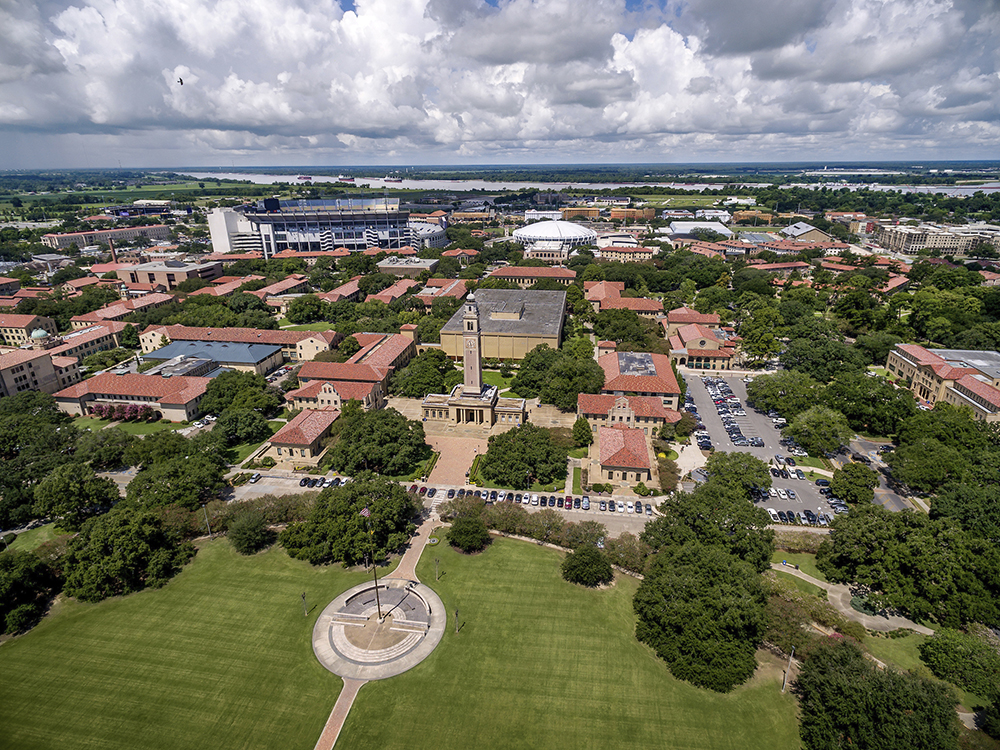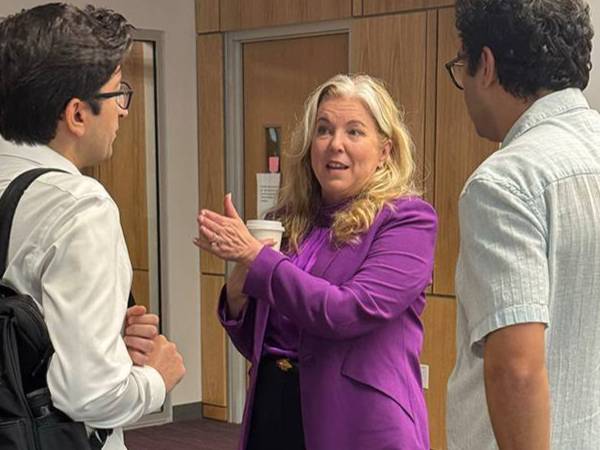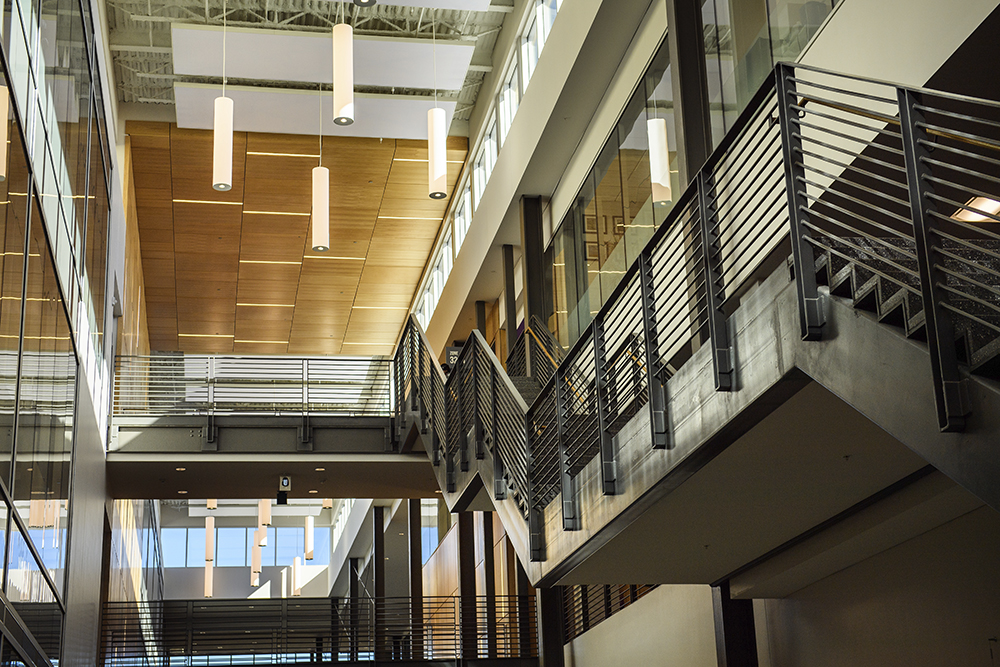About the College
welcome to the college of engineering
The LSU College of Engineering is dedicated to creating engineers who can transform ideas into reality to solve society's problems and improve the quality of life. We cultivate leaders with a strong sense of global awareness, an entrepreneurial spirit, and exceptional communication skills. LSU Engineering students are immediately successful after graduation due to experiences that yield increased opportunities in the workforce.
Companies hire LSU Engineering graduates because our program is designed to prepare future industry leaders in a variety of disciplines. We do this through award-winning programs, faculty, and research opportunities. The LSU College of Engineering is also closely aligned with LSU’s Scholarship First Agenda, a guiding framework that capitalizes on the university’s strengths in agriculture, biomedicine, coastal studies, defense, and energy.
The College of Engineering offers a Bachelor of Science in Biological Engineering, Chemical Engineering, Civil Engineering, Computer Engineering, Computer Science, Construction Management (on-campus and online), Electrical Engineering, Environmental Engineering, Industrial Engineering, Mechanical Engineering, and Petroleum Engineering.
It also offers a Master of Science in Biological Engineering, Chemical Engineering, Civil Engineering (on-campus and online), Coastal & Ecological Engineering, Computer Science, Construction Management (on-campus and online), Electrical Engineering, Engineering Science, Industrial Engineering (on-campus and online), Mechanical Engineering, and Petroleum Engineering.
PhD programs are offered in Biological Engineering, Chemical Engineering, Civil Engineering, Computer Science, Construction Management, Electrical Engineering, Engineering Science, Industrial Engineering, Mechanical Engineering, and Petroleum Engineering.
Online post-baccalaureate certificates are offered in Construction Management, Facilities Management, and Modern Topics of Petroleum Engineering. In addition, online graduate certificates are offered in Cloud Computing and Networking, Healthcare Analytics, and Healthcare Systems Engineering.
In Fall 2023, the college is home to 5,325 students—4,777 undergraduate and 548 graduate. Seventy-six percent of our students are male, 24% are female, and 32% come from diverse backgrounds. As of Fall 2022 (latest numbers available), the College of Engineering has 187 faculty and 136 staff.
In December 2017, the College of Engineering completed the last phase of a $110 million renovation of 300,000 square feet in Patrick F. Taylor Hall (PFT) and the expansion of a new 110,000-square-foot chemical engineering annex. The expanded, renovated complex houses the majority of the engineering departments, as well as the college’s administration.
Large capstone labs and integrated fabrication shops support interdisciplinary work throughout the facilty. In all, the building has 436,691 square feet of usable, assignable space, including:
41,202 square feet of student collaboration space
134,969 square feet of teaching and laboratory space.
1,576 classroom seats.
272 faculty and staff offices.
The college houses eight organized research units that facilitate the efforts of the
faculty—the Louisiana Water Resources Research Institute (LWRRI), Louisiana Transportation
Research Center (LTRC), Hazardous Substance Research Center/South and Southwest (HSRC),
Center for Rotating Machinery (CeRoM), Center for Atomic Level Catalytic Design, Gulf
Coast Research Center for Evacuation and Transportation Resiliency, Turbine Innovation
and Energy Research Center (TIER), and Center for Geoinformatics (C4G).
The college is also home to the Petroleum Engineering Research and Technology Transfer Laboratory (PERTT Lab), Virtual Driving Simulator, Advanced Manufacturing and Machining Facility (AMMF), BASF Sustainable Living Laboratory, Building Simulation and Information Modeling Studio, and Center for River Studies.
Engineering Teams That Win
The college offers Bachelor of Science, Masters of Science, and PhD programs, as well as online Online post-baccalaureate and graduate certificates in several areas.
Mission
The primary mission of the College of Engineering is to impart knowledge and learning skills to its students while also creating new knowledge and seeking innovative ways to improve people’s lives.
Vision
Our vision is to harness and enhance the College of Engineering’s resources. In doing so, we will continuously transform the lives of the citizens of our state, the nation, and the world through: research and innovation, instruction and learning, and outreach and engagement. We seek to establish the College as a critical asset for Louisiana citizens, industry, and government.
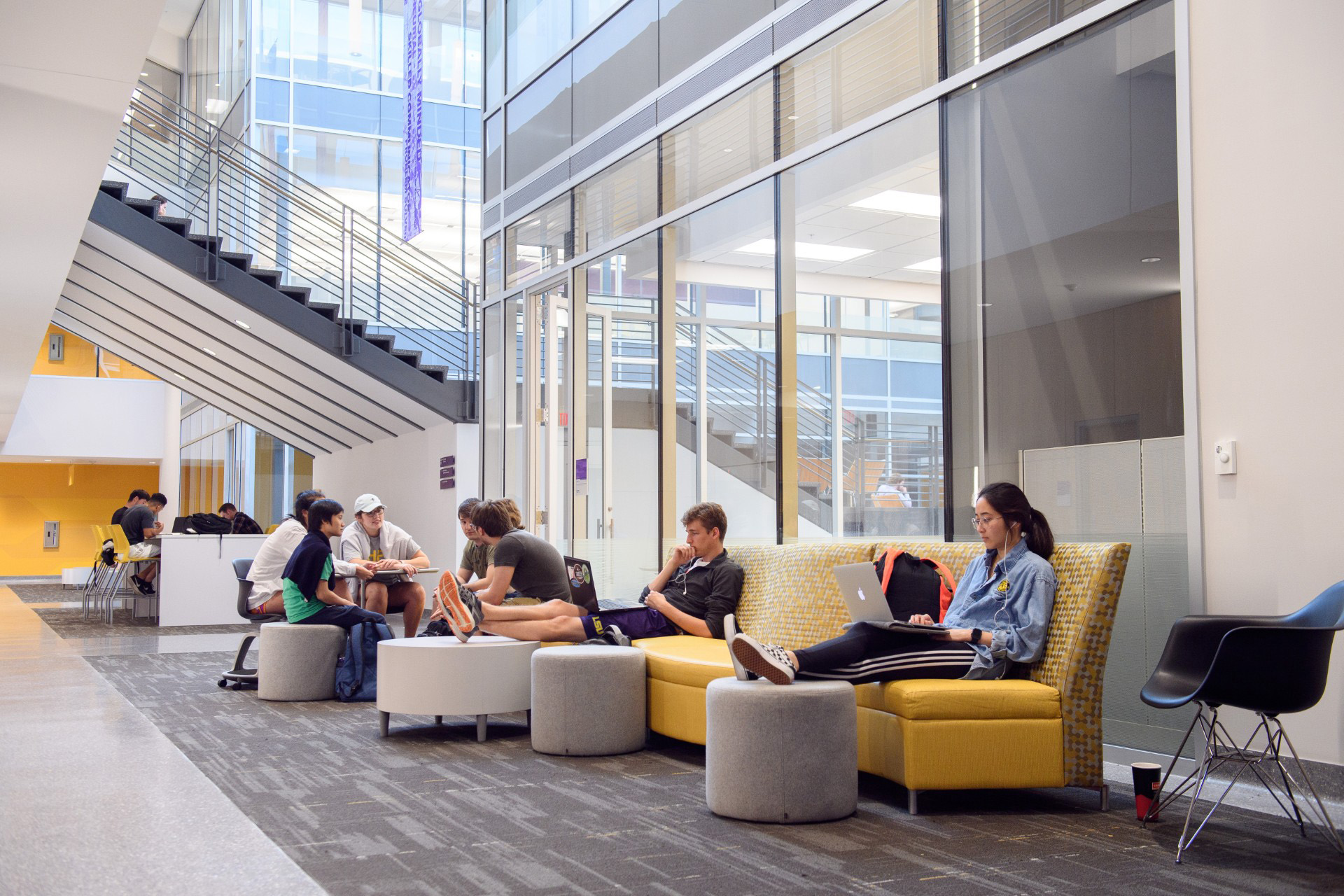
Academic Programs
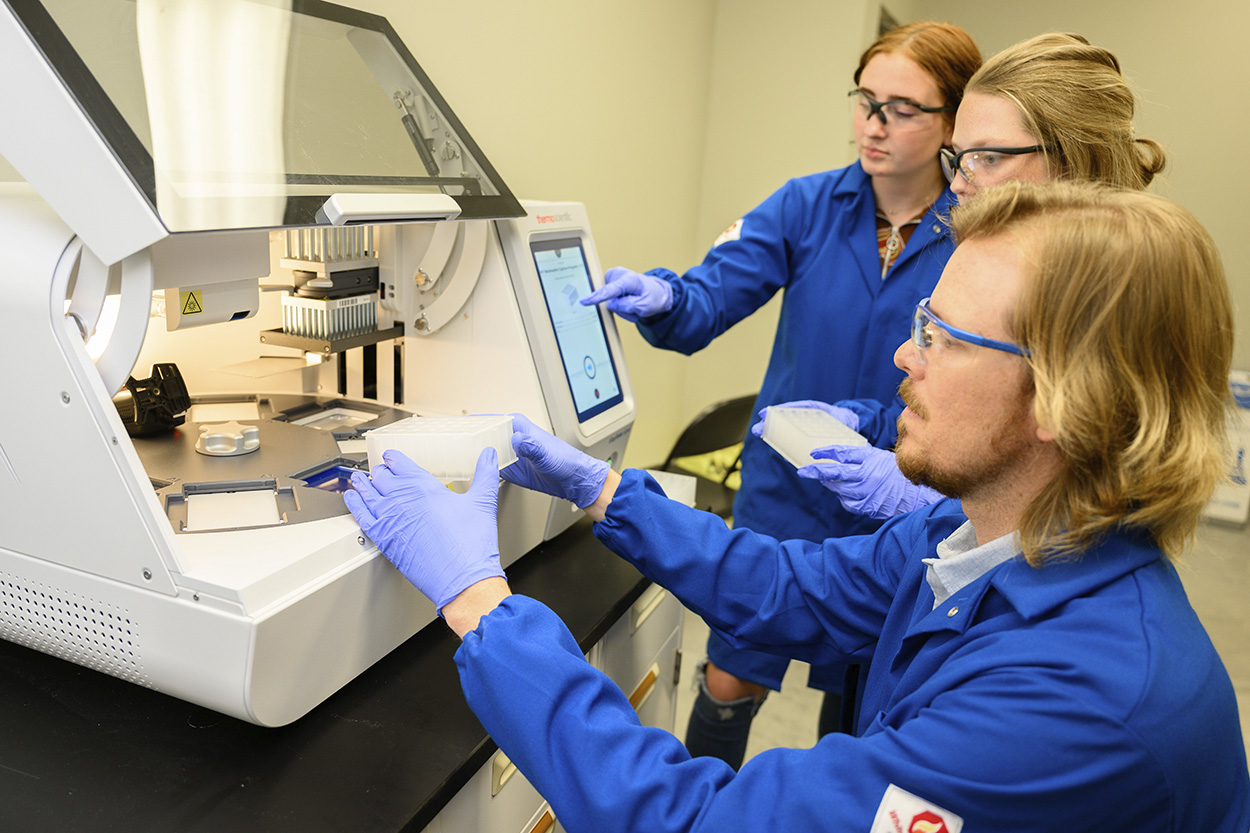
Research, Alumni and Latest News
